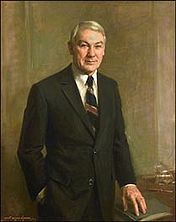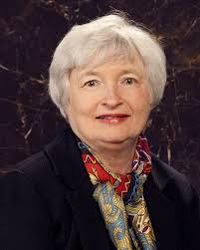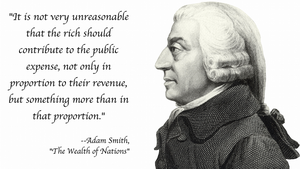Think of this as Volume 18, Number 34 of the newsletter I have written weekly since March, 1997. Enjoy.

This is what I’ve learned over a lifetime of studying money. And most conservatives still don’t get it. They think gold is money. They also think governments are families, or businesses. Governments are banks, not businesses.
But let’s take this one step at a time.
First, gold isn’t money, unless everyone agrees gold is money. For the last 40 years oil has been money, because everyone has accepted it as a medium of exchange, it defines value in trade. But that’s going to change real soon, and then what’s money? The answer is we’ll find out. It’s going to be whatever is deemed most essential in a post-energy economy.
Money is a verb, it’s the exchange. It’s not any particular thing. The thing that’s essential, that everyone is willing to exchange other things (including things called money) for, that’s money. But it’s the exchange that defines the transaction, not any one thing being exchanged. No one thing can be held indefinitely and called “money,” for just this reason.

All lenders need to be prepared to take haircuts. Otherwise there’s no risk. Just as all borrowers must take the penalty for defaulting on their bad bets, so banks – and governments – need to take a hit when they make too many loans. Governments go under, countries to not. To think this equates to a family going under, to think that suffering is good for a nation’s soul, is pure madness.
No one illustrates this misunderstanding better than the stories of two Fed chairs – one from the past, one who lives in the present.

Miller was appointed Chairman of the Federal Reserve by President Jimmy Carter in 1978. He lasted less than 18 months and was quietly shunted to the position of Treasury Secretary while Paul Volcker came in to rescue the economy.
Miller’s mistake was being an inflation “dove” at a time when inflation was ready to race out of control. He didn’t raise interest rates, the dollar tanked, inflation spiked.
Volcker, of course, raised interest rates and the inflation monster was eventually tamed through high unemployment and Ronald Reagan jawboning Arabian oil prices down. Ever since then, to be “dovish” on interest rates – to manage the economy for growth rather than to fight inflation – has been seen as the ultimate wrong by Wall Street.

Here’s a secret no one in Washington, or on Wall Street, seems willing to share. New Fed chair Janet Yellen is a dove. That much was clear in reading her Jackson Hole speech. Yellen is not going to raise interest rates until she feels the job market has recovered, and she’s not certain it has. The fight against inflation must take a back seat in her view to the fight against the bad economy.
In the present situation she is right. Miller himself would be right in the present situation. There is more to be feared from deflation right now than inflation. Food prices are down, energy prices are down, technology prices are always falling, productivity keeps rising, and wage pressures aren’t discernible, even as the unemployment rate has fallen to 6.2%. The only cure for this is more money.
Still, Yellen’s stance is controversial, even within her own board. Fed minutes indicate there are fears of creeping Millerism, despite falling prices, and while the latest vote was 9-1 to keep rates steady that may not reflect the opinions of Fed governors. I think that’s because many Fed governors still believe this nonsensical conservative kant – that money is a noun, and that countries are families or businesses.

If Yellen is wrong, if inflation does rear its ugly head, and money becomes less valuable, with the dollar slumping and the economy careening out of control, all of this will be brought up again. But if she turns out to be right, and the recovery continues while inflation remains muted, it might be time for Wall Street to issue an apology.
So far she’s right.
The lesson in all this is that the same policy can be right or wrong depending on the circumstances. When inflation is high dovish money policies are very bad, hawkish ones are good. But when inflation is low, when deflation is possible, then a little Millerism is actually a good thing.
Consistency in economic policy is the hobgoblin of little minds. I was for Volcker, because his policies promised to tame runaway inflation. I’m for Yellen, because her policies promise to avoid deflation and grow the economy. It doesn’t mean I’ve changed. It means economic circumstances have changed.
The same flexibility should extend to fiscal policy, to all types of policy. If you’re not willing to change your mind on policy based on changing circumstances, then why did God evolve that big mess of gray matter on top of your spinal cord? Other than being the perfect place for a hat.










